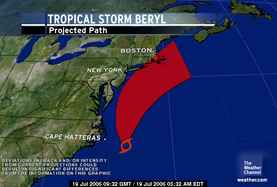The post from two days ago about Whitman and erasure was actually the beginning of a paper that eventually led me to my dissertation. After the intro that you read, the paper makes a turn into typical "academic prose." This, however, is the conclusion of that paper. Today, as I work on chapter four, I find myself thinking about these comments that I made so boldly only a few years ago:
I started this paper with a personal narrative in which I described my process of discovering the erasure made by a patriarchal text during which I was able to reshape my understanding of poetry, my own education, and finally, the depth at which gender biases must be uprooted and exposed in order to find new ways of understanding feminisms and our challenges as feminists. The description of a personal experience in an academic paper would be labeled by many people to be inappropriate, irrelevant, and probably a feminine digression from the “real work.”
On page three, I begin a second introduction, a more “suitable” introduction that is simply based in the theories of gender performance, poetics, and sociolinguists. I’ve done both what is expected of me and what I wanted to do: one introduction to my thinking on these subjects, the paths that led me to a study of this kind, and another introduction to pacify the academic power structure that I still serve. In her study Communicating Gender, Suzanne Romaine calls our attention to the detachment that female scholars have learned to create in their work. She reminds us that we (female scholars) have “learned to depersonalize [our] voices in order to be taken seriously” (334) by removing the less objective “I” from our texts and using instead the objective “language of power” (333). Romaine identifies this objective, logical language of power as masculine and reminds us that the unconventional moves or experimental methods that use feminine or subjective languages in a highly masculinized field such as ours are typically reserved for academics with tenure (334).
It seems imperative that I not only include my narrative, but that I consider the ways in which that inclusion of a feminine performance beside a more traditional/masculine prose creates or subverts gender roles in this paper. According to Judith Butler, the performance of drag can disrupt the gender norms in society. Following Foucault’s ideas from Discipline and Punish, Butler asserts that “gender is a performance with clearly punitive consequences” (
Gender Trouble 178). For academics without tenure, using a “feminine discourse” could be the difference between keeping their jobs and moving to a new one. For students, like myself, an experimental paper might mean a lower grade on my transcripts, or even delayed or prevented graduation. Consequences for disruptions are real and directly affect our lives. So then, why put myself, my grades, my career, and my well being on the line for a short introduction that I could easily cut?
Butler tells us that gender is a role that we perform repeatedly, and that if we are to question the entire construction of gender, we cannot merely “establish a point of view outside of constructed identities” which in this case is the academic or poetic patriarchal languages of our academic and poetic fathers, but we must “affirm the local possibilities of intervention through participating in precisely those practices of repetition that constitute identity and, therefore, present the immanent possibility of contesting them” (
Gender Trouble 187-188). So I have done what many of the poets I discussed have done: I have performed both a masculine and feminine role in order to subvert the expected position of graduate student using the objective language of the discipline in order to subvert the expected role of female student that has to adopt a masculine language, to subvert even the expectation that as a feminist scholar I must speak in a more “semiotic” or feminine language. By consciously performing two (or more?) roles, I hope to disrupt the categories used by linguistic studies I have based this paper upon. If Butler is correct, and I believe that she is, my performance, possibly like Luce Irigaray’s mimicry, opens the possibility of “indeterminacy,” of a “slippage” in the categories of gender that in turns opens the possibility of new identities.












